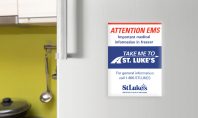In Defense of Public Libraries in the Digital Era

Though decades have elapsed since I was in my childhood, certain memories have lingered. Some of the fondest, are of the Bethlehem Public Library.
Owning a library card was one of my first rite of passages into adulthood as an elementary schooler. Long before the days of computers, I proudly put my card into my wallet and stood in awe of the towering rows of bookshelves, filled with all kinds of wonderful stories. Surrounded by rows and rows of the card catalog—the living altar to the Dewey decimal system—I would revel in the pervasive silence that permeated the library, almost feeling the need to tip-toe through the aisles so as not to be shushed at by a librarian.
Today’s libraries may still be housed in great architectural buildings of the past, but they have transitioned into the digital age to meet the needs of today’s public. Gone are card catalogs, replaced with computer terminals that enable you to look up resources not just at one location, but across the Lehigh Valley. If you don’t have your own computer, many libraries make them available at no cost, as well as offer free WiFi for your digital devices.
In the dark ages of even 30 years ago, if you were doing research and needed a magazine article, you had to ask to look at the current issue of the Reader’s Guide to Periodical Literature, which was a paper guide to recently published articles in both magazines and scholarly journals.
It was organized by subject, and if you wanted to look at one, you had to fill out a slip and turn it in at the reference desk—then wait to have someone go into the archives and literally pull the magazine for you. This could take either minutes or hours, depending on how busy they were. If the magazine was the wrong one, you had to initiate the whole process all over again.
Today’s libraries have access to a myriad of databases and other digital collections, giving you instant access to literally thousands of resources at your fingertips. Many databases will let you view the article on your computer screen, download it, save it as a PDF, or if you’d prefer, email it to yourself. Need to find a magazine for some research you’re doing? You can literally have it up on your screen within as little as
60 seconds.
Maybe you’re not as computer savvy as you’d like. Many libraries staff their reference desks with experts who can give you guidance and advice. Our local libraries are also connected to Power Library, Pennsylvania’s Electronic Library. This lets you find digital resources easily, and even chat (like text messaging) with a librarian in real-time. That’s the thing to remember about the folks who work at the library: They truly live to be helpful and are happy to help you use the library to its fullest.
If you are someone who prefers to read books on your Kindle or other digital device, today’s libraries often offer an array of digital magazines, e-books, and even e-audiobooks. You can search and access many of these from the comfort of your own home or remote location, giving you 24/7 admission to your library via the internet. There are likely dozens and dozens of magazines you’ve never even heard of that you can read. Talk about convenience!
Another convenience many libraries provide is digital media: You can take out DVDs at no cost, including new releases, old TV series, and everything in between. Most libraries have hundreds of titles on hand at any given moment. These are also searchable on the internet or using one of the computers the library has.
For me, though, I guess I’m in the “old school” category: I like holding a book in my hand, the weight of it, the turning of the pages. It’s a very tactile experience, one which I prefer to reading a book on an iPad. What I also like about walking through the stacks of a library is being able to peruse the titles and see if anything piques my interest. I recently read the entire Louise Penny murder mystery series (which I wholeheartedly recommend) and was able to read every book, from Still Life up through Glass Houses (which just came out in 2017). In order, of course! Many of these types of books build upon the characters originating in the first story. Another recommendation if you’re a murder mystery aficionado: Sue Grafton’s alphabet series featuring private detective Kinsey Millhone. Sadly, Sue Grafton passed away recently, however, she leaves behind 25 volumes, beginning with A is for Alibi, up through last year’s Y is for Yesterday.
While our public libraries may not be the sleekest or coolest places to hang out (yes, you still need to keep your voices down), these bricks and mortar buildings have successfully made the transition into the 21st century and the digital age. You can find me at the Southern Lehigh or Bethlehem Public Libraries easily several times a month. One final benefit? With everything being online, you can get email reminders when you have books or movies due, to avoid being late. And, you can also renew online from the comfort of home.
I challenge you to take a trip to your local library and see what they have to offer. If you don’t have a library card, all you’ll need is proof of residence in that town. If you have children or grandchildren, investigate the great things they have for them. I think you’ll be pleasantly surprised at what you’ll find, and even become a regular visitor.






















